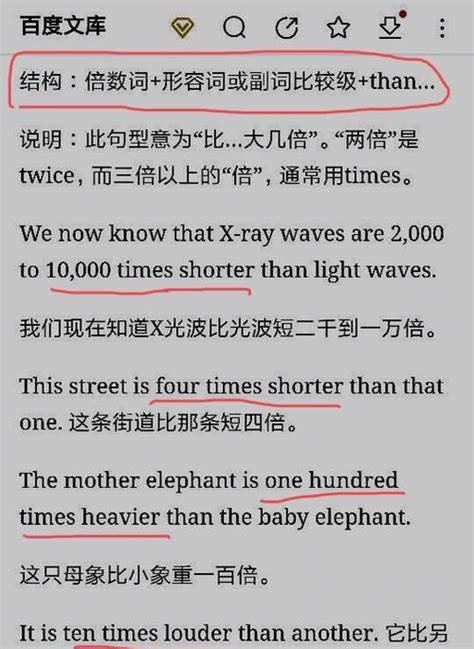揭秘:“现象”的英文表达是什么?

在全球化日益加深的今天,英语作为国际通用语言,其重要性不言而喻。无论是学术研究、商务交流还是日常生活,我们都需要频繁地用到英语来描述和解释各种现象。那么,“现象”在英语中是如何表达的呢?本文将围绕这一问题展开,深入探讨“phenomenon”一词的用法及其在不同领域的应用,同时注重文章的结构清晰、语言简洁以及关键词的合理布局,以提升读者阅读体验和搜索引擎友好度。

一、“现象”的英语表达

在英语中,“现象”通常被翻译为“phenomenon”。这个词源自拉丁语“phenomenon”,原意是“出现的事物”或“可观察的事实”。它既可以指自然界中发生的奇特或引人注目的事件,如极光、日食等自然现象,也可以指社会、文化、心理等领域中观察到的特定行为或趋势,如网络成瘾、职场性别歧视等社会现象。

二、“phenomenon”的语法与用法
1. 词性与变形
“phenomenon”是一个名词,其复数形式为“phenomena”。在描述多个现象时,应使用复数形式。
2. 搭配使用
“phenomenon”常与介词“of”、“in”等搭配使用,构成短语,如“a phenomenon of nature”(自然现象)、“a social phenomenon”(社会现象)等。此外,它还可以与形容词连用,以描述现象的性质,如“remarkable phenomenon”(引人注目的现象)、“unusual phenomenon”(不寻常的现象)等。
3. 例句
The aurora is a natural phenomenon that occurs in the polar regions.
(极光是一种发生在极地的自然现象。)
The rise of online shopping is a modern phenomenon that has changed our shopping habits.
(网购的兴起是一种改变了我们购物习惯的现代现象。)
三、“phenomenon”在不同领域的应用
1. 自然科学领域
在自然科学领域,“phenomenon”常用于描述各种自然现象,如天文现象、地质现象、生物现象等。科学家们通过观察、实验和数据分析,揭示这些现象背后的科学原理,推动科学知识的进步。
Astronomical phenomena, such as eclipses and comets, have fascinated humans for centuries.
(天文现象,如日食和彗星,几个世纪以来一直吸引着人类。)
Geological phenomena, such as earthquakes and volcanic eruptions, can cause significant damage to human societies.
(地质现象,如地震和火山爆发,可能对人类社会造成重大损害。)
2. 社会科学领域
在社会科学领域,“phenomenon”常用于描述社会、文化、心理等方面的现象。这些现象往往与人类的行为、观念和价值观密切相关,对社会发展具有重要影响。
The phenomenon of social media addiction has become increasingly prevalent among young people.
(社交媒体成瘾现象在年轻人中越来越普遍。)
Gender discrimination in the workplace is a persistent phenomenon that needs to be addressed.
(职场性别歧视是一个需要解决的持久现象。)
3. 商业与经济领域
在商业与经济领域,“phenomenon”常用于描述市场趋势、消费者行为等经济现象。这些现象对企业的战略规划和市场定位具有重要意义。
The rise of e-commerce has been a transformative phenomenon for the retail industry.
(电子商务的崛起对零售行业产生了变革性的影响。)
The phenomenon of consumer loyalty is crucial for brands seeking to retain customers.
(消费者忠诚度现象对于寻求留住客户的品牌至关重要。)
4. 艺术与文学领域
在艺术与文学领域,“phenomenon”也可以用于描述某种艺术风格、文学流派或文化现象。这些现象反映了人类的精神追求和文化传承。
The Beat Generation was a literary phenomenon that emerged in the post-World War II era.
(垮掉的一代是二战后兴起的一种文学现象。)
The popularity of street art has become a cultural phenomenon that transcends borders.
(街头艺术的流行已成为一种跨越国界的文化现象。)
四、“phenomenon”的学术研究与讨论
在学术研究中,“phenomenon”是一个核心概念,用于指代研究对象或研究内容。学者们通过对特定现象的观察、分析和解释,推动学科知识的深化和拓展。
Sociologists study social phenomena to understand how societies function and change.
(社会学家研究社会现象以理解社会的运作和变化。)
Psychologists investigate psychological phenomena to explore the workings of the human mind.
(心理学家研究心理现象以探索人类心灵的运作。)
在讨论中,“phenomenon”也常被用作话题的引入或总结,以强调讨论的焦点或结论。
The phenomenon of climate change is a pressing issue that requires global cooperation.
(气候变化现象是一个迫切需要全球合作的紧迫问题。)
The increasing popularity of remote work is a phenomenon that is likely to reshape the future of the workplace.
(远程工作越来越受欢迎是一种可能重塑未来工作场所的现象。)
五、结语
综上所述,“phenomenon”作为“现象”在英语中的对应词,具有广泛的应用领域和丰富的内涵。无论是在自然科学、社会科学、商业经济还是艺术与文学领域,我们都可以看到“phenomenon”的身影。通过深入理解和运用这个词,我们可以更好地描述和解释各种现象,推动知识的进步和社会的发展。同时,在学术研究和日常讨论中,合理使用“phenomenon”也有助于提高表达的准确性和专业性。
- 上一篇: 鸯字组词精选!
- 下一篇: 9877的含义是什么?
-
 探索“电击”的英文表达:揭秘这一术语的电力魅力资讯攻略12-03
探索“电击”的英文表达:揭秘这一术语的电力魅力资讯攻略12-03 -
 揭秘!春夏秋冬的英文表达是什么?资讯攻略02-21
揭秘!春夏秋冬的英文表达是什么?资讯攻略02-21 -
 揭秘!广交会的英文表达是什么?资讯攻略02-08
揭秘!广交会的英文表达是什么?资讯攻略02-08 -
 平安夜英文表达是什么?资讯攻略02-27
平安夜英文表达是什么?资讯攻略02-27 -
 揭秘!母亲节快乐的英文表达是什么?资讯攻略03-26
揭秘!母亲节快乐的英文表达是什么?资讯攻略03-26 -
 揭秘!白马王子的英文表达是什么?资讯攻略12-05
揭秘!白马王子的英文表达是什么?资讯攻略12-05












